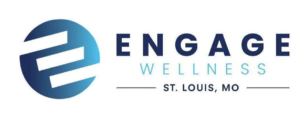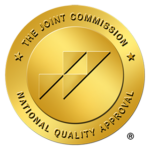Home / Levels of Care /
Home / Levels of Care / Full-time clinical support with real-world flexibility
Superior Treatment From A Partial Hospitalization Program Near You
What is a Partial Hospitalization Program?
A partial hospitalization program, also known as a PHP or day treatment program, helps bridge the gap between full-time residential inpatient treatment and the more flexible intensive outpatient program. Clients spend six hours per day, six days a week, at the treatment center. During this time, clients work with an extensive multidisciplinary team of psychiatrists, social workers, nurses, licensed clinicians, and therapists.
Each evening, you’ll be back home, able to eat dinner and relax in a comfortable environment, and sleep in your own bed. This also gives you the chance to use your new coping skills and relapse prevention strategies in real life, returning to treatment the following morning to continue building on your recovery.
Since PHPs provide hospital-level stabilization without requiring an overnight stay, they are the ideal healthcare framework for those who need a short-term care level between outpatient and 24-hour residential programs.
Medication management, advanced discharge planning, and ongoing family education help give every treatment plan the best path to a positive outcome.

How (and Why) PHP Treatment Works
The primary reason our adult partial hospitalization program is effective is that it has been designed as a comprehensive, full-day curriculum of psychotherapy and medical oversight. Every morning begins with a check-in routine that includes a brief meeting with a staff member who tracks medication and acute symptoms.
Throughout the day, clients will participate in skills-based group therapy sessions that may include CBT, DBT, and various mindfulness strategies to enhance emotional regulation. Individual sessions will focus on processing trauma history, recognizing relapse warning signs, and zeroing in on personal goals.
To promote structure and safety, the schedule is fairly tight and may resemble an inpatient program; however, PHP is a powerful middle level of care, offering a more flexible approach without the overnight stay. You get all the benefits of structured inpatient treatment, but you’ll return home each night. At the end of each week, clients can see measurable gains in symptom control and a clear path to their next step.

Efficacy of PHP Treatment
One 2023 meta-analysis of adult PHPs reported significant reductions in depression and anxiety scores within four weeks, outcomes similar to short-term inpatient treatment but at a lower cost.[1] Studies on substance use disorder further indicate that day programs delivering at least 25 hours of weekly therapy improve six-month abstinence rates by nearly 40%.[2]
These results stem from the program’s structure. Clients practice coping skills immediately between sessions, receive same-day medication adjustments, and benefit from daily peer feedback during group therapy. Close clinician contact speeds stabilization, while nightly returns home help expose real-world stressors early, allowing rapid refinement of relapse-prevention strategies.
When combined with evidence-based modalities like CBT, DBT, and more, a PHP program offers a proven path to lasting behavioral health and overall well-being for adults and adolescents navigating complex mental health conditions.
Engage Wellness’s Modalities for PHP Treatment
Therapy modalities are a focal point of the care provided at Engage Wellness Missouri. From Cognitive Behavioral Therapy to Holistic Wellness Programs, our treatment approach helps you establish healing from the inside out.
Each day is a blend of modules that include individual therapy, group therapy, and various evidence-based modalities, as outlined in each client’s individualized treatment plan. These modalities typically include behavioral health treatments such as cognitive behavioral therapy, dialectical behavior therapy, and motivational interviewing.
CBT is one of the therapies you may participate in during treatment. CBT is a well-established modality that teaches clients thought-reframing and problem-solving techniques that can help break negative thought cycles and actions resulting from a lack of impulse control. The incorporation of daily homework helps clients apply new skills in real-life situations, allowing them to report progress the next morning. Similarly, DBT, a variant of CBT, takes place in small groups where you will focus on mindfulness, tolerating stress, and interpersonal effectiveness. The emotional regulation tools learned here can substantially lower self-harm cravings and improve interpersonal communication.
These modalities are designed to help care for the whole individual. Therapy modalities offered at Engage Wellness include the following:

Finding Your Place on the Continuum of Care
Every client begins with a bio-psycho-social assessment and ASAM criteria review. This assessment will help pinpoint your current risk factors, living environment, and medical needs, and then compare them with the accommodations of each level of care.
Within 24 hours, clinicians will craft a comprehensive treatment plan tailored to the individual needs of the client. This plan outlines the combination of group therapy, individual sessions, and medication management for optimal success.
Progress is reviewed frequently and used during both daily staff huddles and weekly meetings. Once symptoms begin to stabilize, case managers can begin creating a step-down path, which allows the level of care and therapies to be adjusted depending on your individual needs.
Throughout the entire process, both you and your loved ones stay active participants in every decision.



